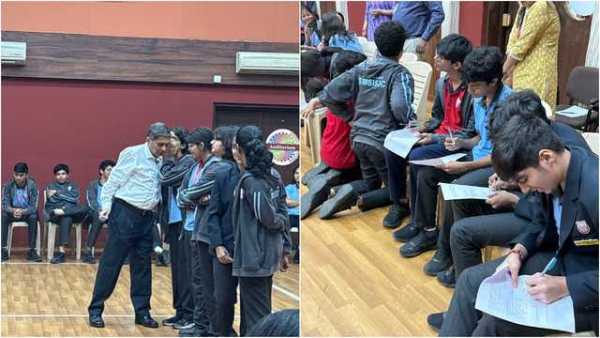
Mumbai: Bunts Sangha’s S.M. Shetty International School and Junior College, Powai, on Monday launched the first session of a 45-day programme aimed at addressing the widespread use of expletives in classrooms, a concern they believe extends across the country and beyond.
Mildred Lobo, principal of Bunts Sangha’s S.M. Shetty International School and Junior College said, “We frequently discuss in meetings with other principals how the use of cuss words has become alarmingly common among schoolchildren.”
She informed that her school’s aim is to tackle the issue through open discussions instead of traditional lectures. The school plans to conduct a series of sessions over 45 days, engaging each grade and parents. Additionally, smaller focus groups of four to five students will be formed to address individual needs, the principal stated.
Harish Shetty, a psychiatrist and trustee of Bunts Sangha’s S.M. Shetty International School and Junior College, who also organised the series, believes that “healthy communication is the key to solving this deep rooted issue.”
Explaining a number of reasons behind students using expletives, Shetty said “obscenity has its roots from various sources. Media, environment, families, culture, and mohalla influence the language in classrooms.”
To encourage introspection, the initial session began with students being asked to describe their mothers and sisters, given that many expletives are centred on these relationships. “Once this happened, we had an open discussion about how even though they respected their female relatives they would use swear words that were based on them,” he said.
Students were also asked to anonymously fill out questionnaires to explore their reasons for using expletives. The session highlighted the emotional and social impact of language, fostering empathy and understanding among participants.
According to Lobo the response from the students was overwhelmingly positive wherein students also asked her as to what they can do to take this initiative forward. She believed that the atmosphere during the session proved to be an “eye opener” for the students.